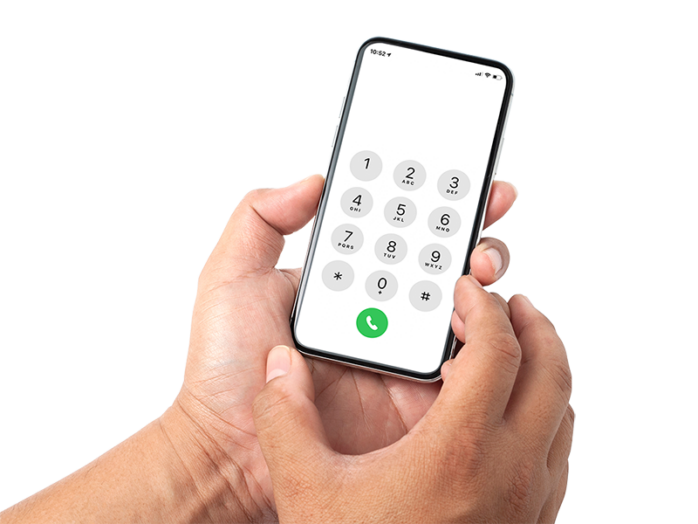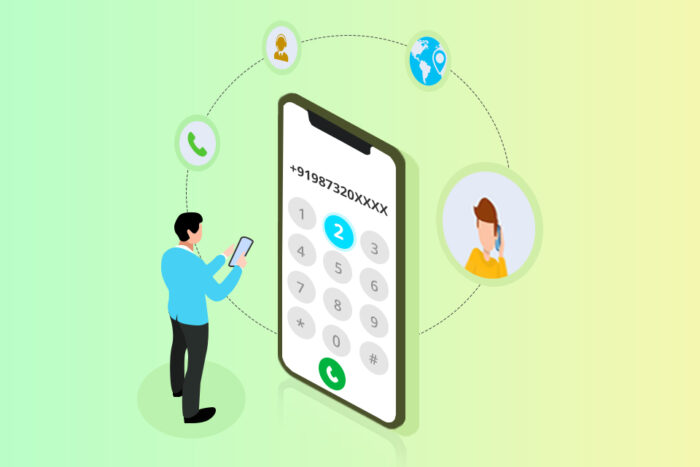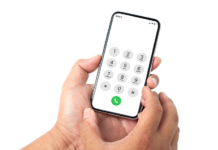
In this article, let’s talk about using a virtual number in business. What are its advantages, disadvantages and possibilities. We’ll tell you where to use virtual numbers and how to choose the right provider.
What is a virtual phone number?
Virtual number is a standard phone number without need for physical PBX (Private Branch Exchange) for call forwarding.
They are phone numbers that are not tied to a specific phone line or device. They can be used to route calls and texts to different devices, making it easier to manage your communication. You can also use virtual numbers to set up call forwarding and voicemail, and they can be used with internet-based phone services like Skype and Google Voice.
There are a few things to keep in mind when using virtual numbers. First, they are not always free. Some service providers may charge a monthly fee, while others may charge per call or text. Second, virtual numbers can be recycled, so if you stop using one it could be reassigned to someone else. Finally, keep in mind that not all phone numbers can be ported to a virtual number, so you may need to check with your service provider before making the switch.

How do virtual numbers work?
Virtual numbers are telephone numbers that are not assigned to a specific phone line or device. Instead, they are routed to a VoIP (Voice over IP) network, which allows them to be accessed from anywhere in the world.
Virtual numbers have a variety of uses, including allowing businesses to have a local presence in multiple countries, providing customers with a toll-free number to call, and allowing people to make calls without revealing their real phone numbers.
They are easy to set up and can be used with any VoIP service. All you need is a VoIP provider that offers virtual numbers and a way to forward calls to your regular phone number.
How call forwarding works
An incoming call comes to the virtual PBX. The station finds a free line and redirects the call to it. The customer gets through to the company and solves the problem, makes an order. Here is the scheme of call forwarding:
The work is driven by the transfer of information over the Internet. A special protocol (SIP) converts voice information to digital data, which is transmitted via IP networks and decoded by the recipient. As a virtual number, information is transmitted over the Internet as if it were a real number.
A real number and a virtual number have the same functions: receiving calls, sending text messages, and registering on websites.

Types of virtual numbers
Of course, one number can’t do everything. That’s why they come in different types:
- for receiving SMS – suitable for those who receive a lot of messages per day;
- for calls – you get a number of any country or region and call your clients;
- One-time – for registration on the site;
- For free calls (toll-free numbers) – suitable for those who have a lot of clients and call-centre.
How virtual numbers help in business
Imagine the following situation: there is a novice businessman Sergei and he needs virtual number of Germany. He sells accessories for technology: laptops, phones, tablets, etc. He has 1-3 clients a day. Sergey communicates with clients by telephone or via Telegram and WhatsApp.
While there are few clients, Sergey handles the calls on his own. He answers each one and communicates. At some point he gets fed up with the fact that there are not enough customers. He orders an advertisement for the store, and after two days the phone is ringing off the hook. On Sergey’s website there are negative comments about how the phone is always busy. No one answers or calls back. Sergey tries to solve the problem and buys a virtual PBX.
Now customers do not hear short ringing tones and always get through to the store. If Sergey does not have time to answer the call, he knows who called anyway: virtual number services “remember” the caller’s contact and the time of the call.
Now the only thing left to think about is expanding the staff and recruiting call center operators, because there are so many calls…

How to get a virtual number
There are a few different ways to get a virtual number. You can purchase it from a provider, or you can port your existing phone number to virtual phone service.
Purchasing a virtual number from a provider is the most straightforward option. You can usually choose from a selection of local or toll-free numbers, and you can activate the number instantly.
If you already have a phone number that you want to use as your virtual number, you can port it to virtual phone service. Porting your number will cancel your service with your current provider and transfer your number to the new service.
Once you have your number, you can start using it for calls and text messages. Most virtual phone services offer a variety of features that can be helpful for businesses, such as call forwarding, voicemail, and auto-attendants.
Tips for using virtual numbers
If you’re thinking about using a virtual number, there are a few things you should keep in mind. Here are some tips to help you get the most out of your virtual number:
- Choose a reputable provider: Not all virtual number providers are created equal. Do your research to find a reputable provider that offers high-quality service.
- Consider your needs: What do you need a virtual number for? Make sure the provider you choose offers features that meet your needs.
- Look for extras: Some virtual number providers offer additional features like voicemail, call forwarding, and call recording. These can be helpful if you need them, so look for a provider that offers them.
- Compare prices: Virtual numbers can vary in price depending on the provider and features you choose. Compare prices to find the best deal.
- Test the service: Once you’ve chosen a provider, be sure to test the service to make sure it meets your expectations.

As we’ve seen, virtual phone numbers are versatile tools that can be used for a variety of purposes. Whether you’re using them for business or personal use, they can be a great way to stay connected and make life a little simpler. Hopefully, this article has given you a better understanding of how they work and how you can use them to your advantage.











